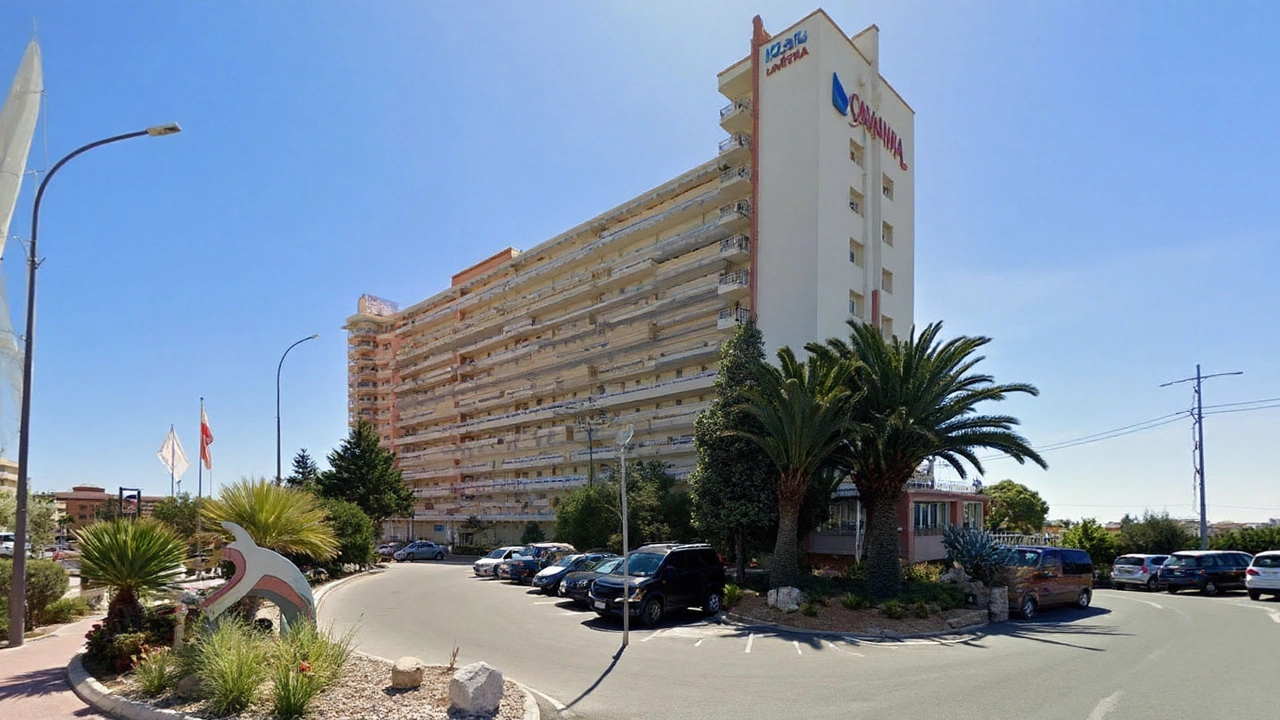What we know so far
A late-summer holiday on Spain’s Costa Cálida turned into a health scare after more than 100 guests at the Cavanna Hotel in La Manga reported gastrointestinal illness on August 25, 2025. Spanish health authorities have opened an investigation into a suspected salmonella outbreak, and the hotel says it is cooperating fully while affected guests receive medical care.
Inspectors are focusing on the hotel’s food preparation and storage areas, a standard first step in foodborne illness investigations. They are expected to review cold-chain logs, supplier deliveries, and buffet handling practices; take swabs from kitchen surfaces and utensils; and collect stool samples and leftover food for lab testing. Those lab results typically begin to come back within 48–72 hours, with more detailed genetic typing following later to confirm the source.
The Cavanna Hotel sits on the La Manga strip, a busy stretch between the Mediterranean and the Mar Menor lagoon. Late August is peak season, which means high volume in kitchens and buffets. In that environment, small slips in temperature control or cross-contamination can have outsized effects. Health officials are examining whether a single dish, a batch ingredient, or a handling lapse triggered the cluster of illnesses.
Salmonella is one of the most common causes of food poisoning worldwide. Symptoms usually include diarrhea, stomach cramps, fever, nausea, and sometimes vomiting. Onset can be quick—often 6 to 72 hours after eating contaminated food—and illness typically lasts a few days. Most people recover without antibiotics, but dehydration is a risk, especially for young children, older adults, and people with weakened immune systems.
Investigators will look at foods that carry higher risk when mishandled: eggs and egg-based sauces, poultry, minced meats, unpasteurized dairy, and dishes that sit warm on buffets. They’ll also review staff health checks and hygiene routines, including handwashing compliance and separation of raw and ready-to-eat foods. If a supplier ingredient is implicated, Spain can flag it through the EU’s Rapid Alert System for Food and Feed so other countries can react quickly.
The hotel has introduced immediate measures to prevent further cases, according to officials. In similar investigations, venues often pause self-serve stations, discard suspect batches, deep-clean kitchens and dining areas, re-test equipment, and retrain staff on time-and-temperature controls. Temporary menu changes—like suspending raw-egg recipes or chilled desserts—are also common until the cause is clear.

Health advice and what comes next
Guests who were at the Cavanna Hotel around August 25 and now have diarrhea, stomach cramps, or fever should seek medical advice, especially if symptoms are severe or persistent. Stay hydrated with water or oral rehydration solutions; small, frequent sips help. Avoid alcohol and very greasy foods until fully recovered. Over-the-counter anti-diarrheals can worsen some infections if you have high fever or blood in stool, so check with a clinician before using them. In Spain, dialing 112 reaches emergency services if symptoms escalate.
If you’re traveling, keep receipts and any booking details. Those records help health teams trace exposures and assist with insurance claims. Tour operators often have medical support lines; contact them early to document illness and get care arranged locally.
For travelers in busy resorts, a few habits lower risk: choose food that’s cooked fresh and served hot; avoid dishes that are lukewarm on buffets; use serving utensils rather than hands; wash or sanitize hands before eating; and be cautious with egg-based sauces or undercooked meats. Tap water in Spain is generally safe, and this incident points to a food source, not water, but people with sensitive stomachs may still prefer bottled beverages.
Spain’s regional health authorities, working with the national food safety agency, are expected to publish initial findings once lab results and inspections line up. If inspectors identify a systemic failure, they can require corrective actions or, in severe cases, suspend parts of a venue’s operations until issues are fixed. If a specific supplier product is to blame, attention will shift to tracing that lot across the supply chain.
La Manga relies on steady tourism through late August and September. Incidents like this can rattle confidence, but transparent updates and quick corrective action usually help restore it. For now, health teams are doing the methodical work: sample, test, verify, and document. Expect more detail in the coming days as lab reports come back and the investigation narrows to the precise source.
